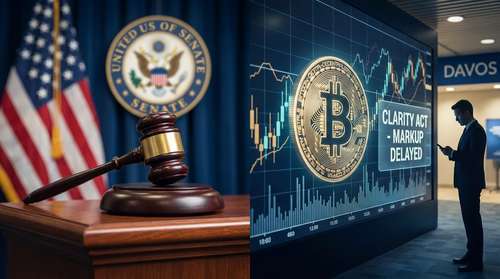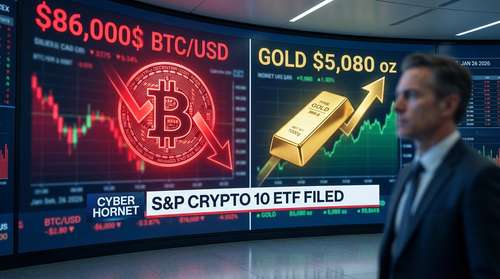Dow Jones Lower by 1.79% Amid Escalating Israel-Iran Conflict: Market Volatility and Global Impacts
The recent surge in military tensions between Israel and Iran has sent shockwaves across U.S. financial markets. There’s no denying that the atmosphere in global markets is electric and, in some instances, downright jittery. Today, as the Dow Jones Industrial Average dipped by 1.79%, investors around the world are grappling with the ripple effects of this unfolding geopolitical crisis. The sudden downturn has stirred conversations about the broader stock market impact, reminding us all to keep a close eye on market indicators during times of uncertainty.
Investors find themselves caught in the middle of a storm fueled by the Israel-Iran conflict. When geopolitical tensions flare up, the natural reaction is to retreat to safer assets, and that’s exactly what we’ve seen with U.S. stock indices. This particular market decline serves as a stark reminder that when international conflicts escalate, the fallout isn’t confined to political circles—it hits our wallets and investment portfolios as well.
Market Reaction and Investor Concerns
The conjunction of military conflict and a significant dip in the Dow Jones has many investors asking, “What now?” In this section, we’re looking at the immediate market reaction and the genuine investor concerns that have surfaced as the crisis deepens. It's a situation that echoes previous episodes of market volatility where fear and caution reigned supreme.
Investors are understandably nervous as stock market impact becomes very apparent, especially given the 1.79% drop in the Dow. In less than a day, the dynamics of global markets shifted dramatically. You have to wonder: can the usual optimism of Wall Street withstand these strains? The simple truth is that every news headline about rising geopolitical tensions or conflict seems to send shockwaves through established market trends.
Short-term traders, in particular, are experiencing a mix of anxiety and opportunism. Some are retreating into bonds and other safe-haven investments, while others see this as a buying opportunity, waiting for the dust of market decline to settle before jumping in. With both the S&P 500 and Nasdaq also experiencing declines, it’s clear that the investor concerns are far from isolated to one stock index or sector.
It’s a scenario that reminds us how closely global markets are tied to the actions of political and military leaders. Every economic indicator seems to react like a domino falling in sequence whenever there’s bad news from abroad.
Geopolitical Tensions and Economic Implications
This section delves into the broader economic implications of the Israel-Iran conflict, with a lens on how geopolitical tensions can unsettle financial markets. With rising anxiety over inflation and future Federal Reserve actions, investors are already making plans for an unpredictable future. In times like these, the media and market experts converge, offering insights that can be as sharp as a scalpel or as confusing as weather forecasts.
There’s a strong connection between geopolitical tensions and rising commodity prices, such as oil. As the Israel-Iran conflict intensifies, oil prices have soared, intensifying the overall economic burden on consumers and industries alike. Such trends are a reminder that our lives are tethered not just to stock market fluctuations, but also to the global supply and demand of essential resources.
Many will draw an analogy comparing this situation to a tug-of-war where both sides of the economy are pulling at each other. On one side, you have investor concerns about market volatility; on the other, you face the harsh realities of increased energy prices impacting everyday expenses. The economic implications reach deep into household budgets and corporate forecasts alike, prompting significant questions about future market stability and recovery strategies.
This interplay of rising oil prices and investor unease makes it clear that global markets are deeply sensitive to geopolitical events. The recurrent theme is that heightened international tension always carries an economic price tag, impacting everything from everyday consumer goods to the most high-flying tech stocks.
Stock Market Impact and Future Outlook
Let’s shift our focus to the broader stock market impact and what lies ahead for investors amid this environment of uncertainty. Many market watchers are speculating about the Federal Reserve’s next moves and whether current fears of escalating conflict will spark a chain-reaction across financial markets worldwide.
One thing is evident: the current market landscape is markedly volatile. As we speak, several experts are weighing in on potential responses from central banks and policy-makers. It’s like watching a high-stakes chess game where every move changes the dynamics not only of local economies but of global markets as well.
A few market analysts highlighted that the role of the Federal Reserve could be likened to a safety net for many, though it also carries significant weight when it comes to curbing inflation. Now, faced with both domestic and international pressures, how the Federal Reserve maneuvers in the coming weeks is a question on everyone’s lips. This uncertainty inevitably contributes to the current market decline and growing investor concerns.
The typical cycle of risk appetite in markets is disrupted during such times. Sweeping changes in market sentiment can happen in a heartbeat, leading to a broad re-assessment of asset values. This forms the basis of what we’re witnessing: a stock index, once the barometer of economic health, now turns into a gauge of our times, where global conflicts can steer domestic market outcomes.
Daily news cycles and rapid market movements have made it clearer than ever that these aren’t isolated incidents but part of a broader tapestry involving capital flows, investor psychology, and real-world events. The story unfolding right now is an intricate blend of news, real-time economic indicators, and on-the-ground consequences visible in everyday transactions.
A Closer Look at the Investor Mindset
There’s an interesting parallel here between current market trends and past financial crises. Even seasoned investors find themselves rethinking risk and rebalancing portfolios amidst the current Israel-Iran conflict. This isn’t a typical day in the markets; the atmosphere is charged with uncertainty and sometimes even fear.
Picture your typical investor contemplating their next move amid this turmoil. Every price dip on the Dow Jones acts as a stark reminder of how quickly fortunes can change. Not only are financial markets reacting, but the underlying economic implications make for a compelling, if nerve-wracking, narrative that continues to evolve.
In previous episodes of market volatility, many have noted the resilience of global markets in bouncing back. Historically, after a steep decline comes a phase of cautious optimism, where market participants re-enter the fray with subdued expectations. Yet this time, the simultaneous occurrence of geopolitical tensions and a notable market decline might mean we’re in for a longer, more cautious ride.
It’s intriguing to reflect on how news cycles, investor sentiment, and economic realities all collide in real time. Many investors are positioned on the frontlines of this unfolding scenario, yearly comparing this period to historical events marked by similar market declines and geopolitical shocks.
Wrapping It Up: Navigating Uncertainty
As we wrap up this look into the ongoing market saga, several themes are clear, and the conversation isn’t ending here anytime soon. The Dow Jones decline by 1.79% is a wake-up call that reminds us of how international events can rapidly reshape our financial landscape. It’s a story about market volatility, investor concerns, and the economic implications that ripple across global markets.
This scenario might be unsettling, but it also offers an important lesson: staying informed and prepared is key. As you navigate these uncertain times, consider diversifying your investments, keeping an eye on both macroeconomic developments and specific market signals, like the stock index movement of the Dow Jones.
Every downturn, every moment of market anxiety, teaches us something about resilience and the unpredictable dance of financial markets. So, whether you’re a casual observer or a seasoned investor, remember that this moment is part of a larger picture—a dynamic interplay of geopolitical tensions, market decline, and shifting investor strategies.
In times of uncertainty, keeping a level head, staying adaptive, and learning from history can help guide investment decisions. After all, every storm eventually passes, leaving behind lessons that pave the way for recovery and growth.




